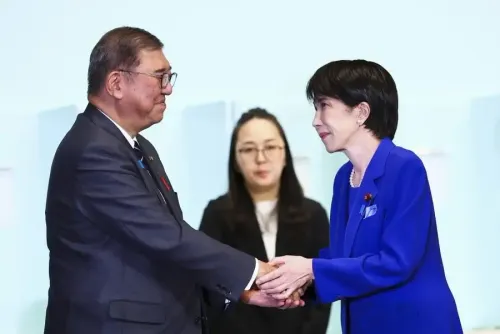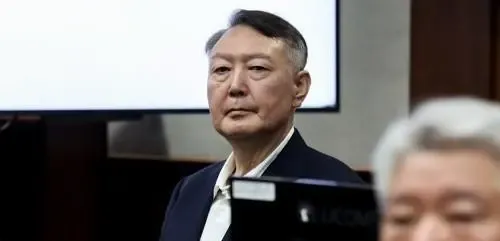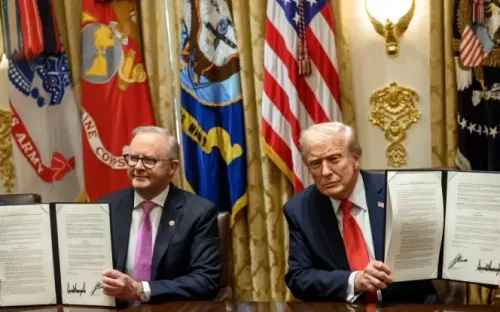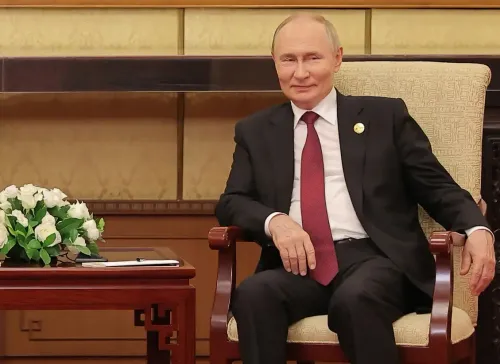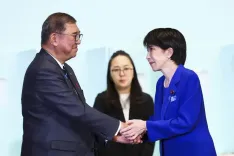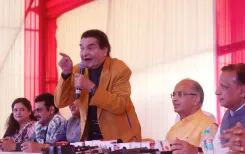Will France's Ambassador Influence 'Free and Fair' Elections in Bangladesh?
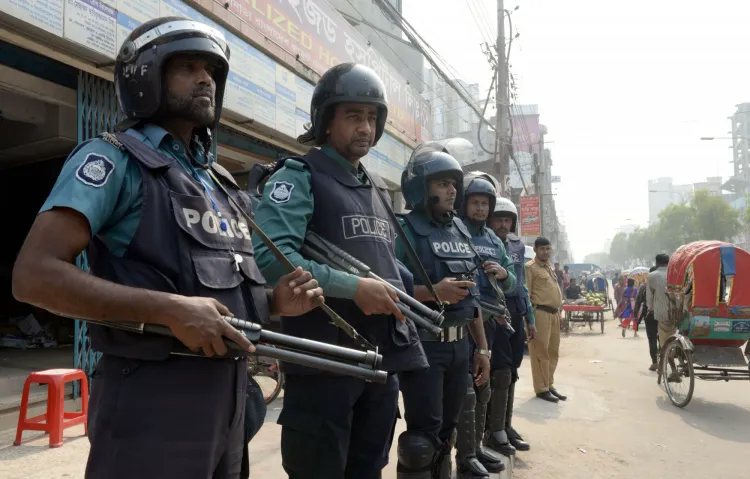
Synopsis
Key Takeaways
- Importance of citizen participation in elections.
- International community's call for fair electoral processes.
- Concerns over legislative changes affecting political rights.
- Need for inclusive representation in democracy.
- Impact of global scrutiny on Bangladesh's democratic transition.
Dhaka, July 15 (NationPress) The French Ambassador to Bangladesh, Marie Masdupuy, has voiced optimism regarding the forthcoming national elections in the South Asian nation, emphasizing the importance of citizen engagement and support for a diverse array of political parties, including smaller ones and independents.
"Democracy encompasses liberty, equality, fraternity, and inclusivity. The fundamental rights of free expression, assembly, and press freedom are vital to this challenging journey, and they must be accompanied by equitable justice," stated Masdupuy at a reception hosted by the French Embassy in Dhaka to celebrate France's National Day.
Earlier this month, Yunus, during discussions with US Secretary of State Marco Rubio, sought support from Washington for Bangladesh's democratic evolution and confirmed that elections are slated for "the early part of next year".
In the previous month, European Union's Ambassador to Bangladesh Michael Miller also expressed hope for the restoration of democratic order through a transparent and credible election process.
Numerous international organizations have persistently advocated for the reinstatement of democracy in Bangladesh, urging inclusive and fair elections.
Recently, UN High Commissioner for Human Rights Volker Turk expressed serious concern over new legislative changes enacted under Muhammad Yunus's interim government, which permit the prohibition of political parties and their activities.
While addressing the 59th session of the Human Rights Council in Geneva, the UN human rights chief called on the interim government to implement significant reforms to foster an environment conducive to free and inclusive elections.
"I am apprehensive about recent legislative modifications that facilitate the banning of political entities and activities. This unduly limits the freedoms of association, expression, and assembly. I urge genuine progress on reforms to cultivate a backdrop for free and inclusive elections," Turk remarked.
Previously, the Office of the United Nations High Commissioner for Human Rights (OHCHR) released a fact-finding report on Bangladesh, offering recommendations on specific areas such as accountability, justice, police, civic space, political systems, and economic governance.
The report indicated that barring political parties could obstruct a genuine transition to a multiparty democracy and disenfranchise a substantial portion of the Bangladeshi electorate.
Human Rights Watch, a US-based advocacy organization, also harshly criticized the Yunus administration for attempting to suppress the rights of supporters of former Prime Minister Sheikh Hasina and the Awami League party.
Earlier, UN Secretary-General Antonio Guterres had also called for inclusive elections in Bangladesh, encouraging the interim government under Yunus to "continue to make every effort" to be inclusive, considering the voices of women, youth, and minority communities.

